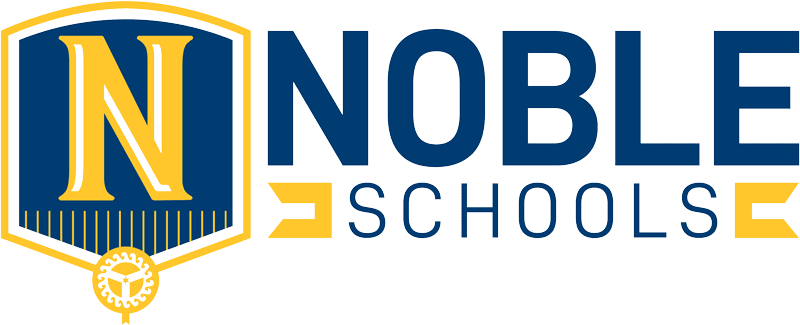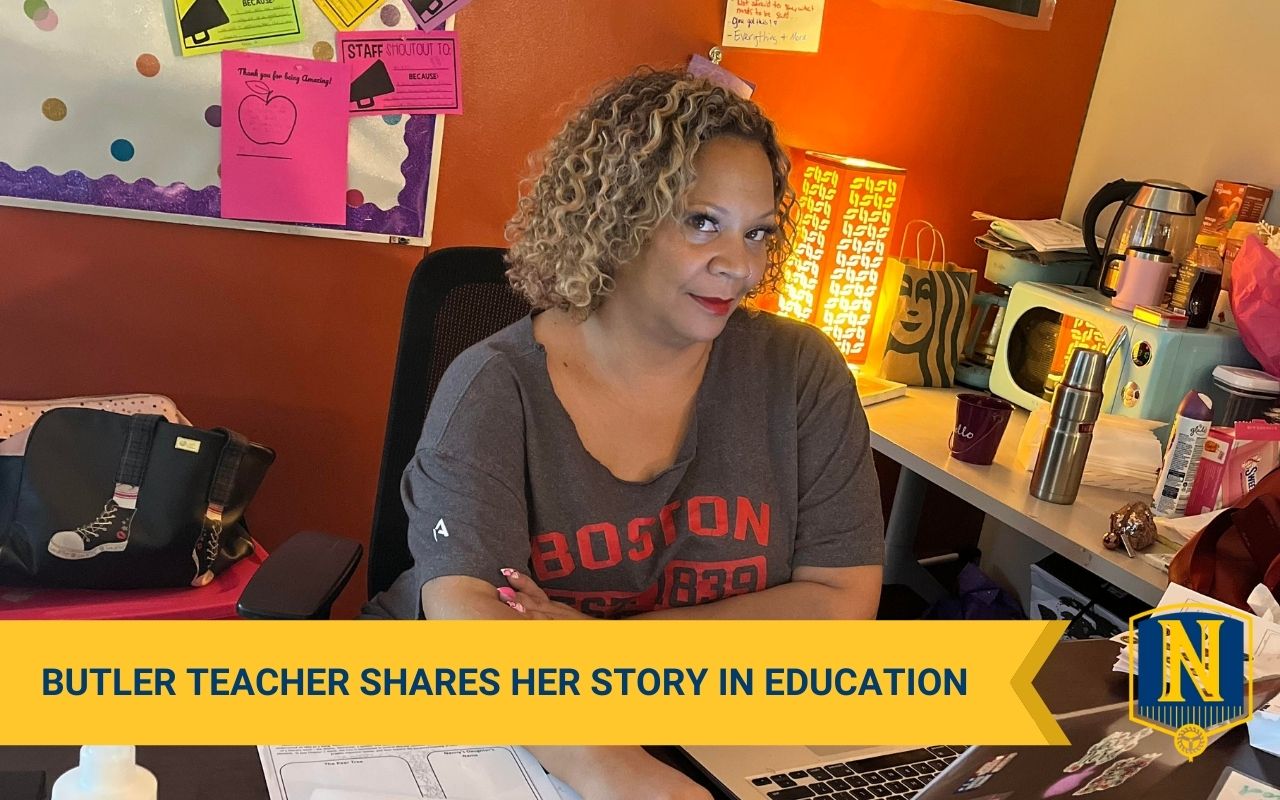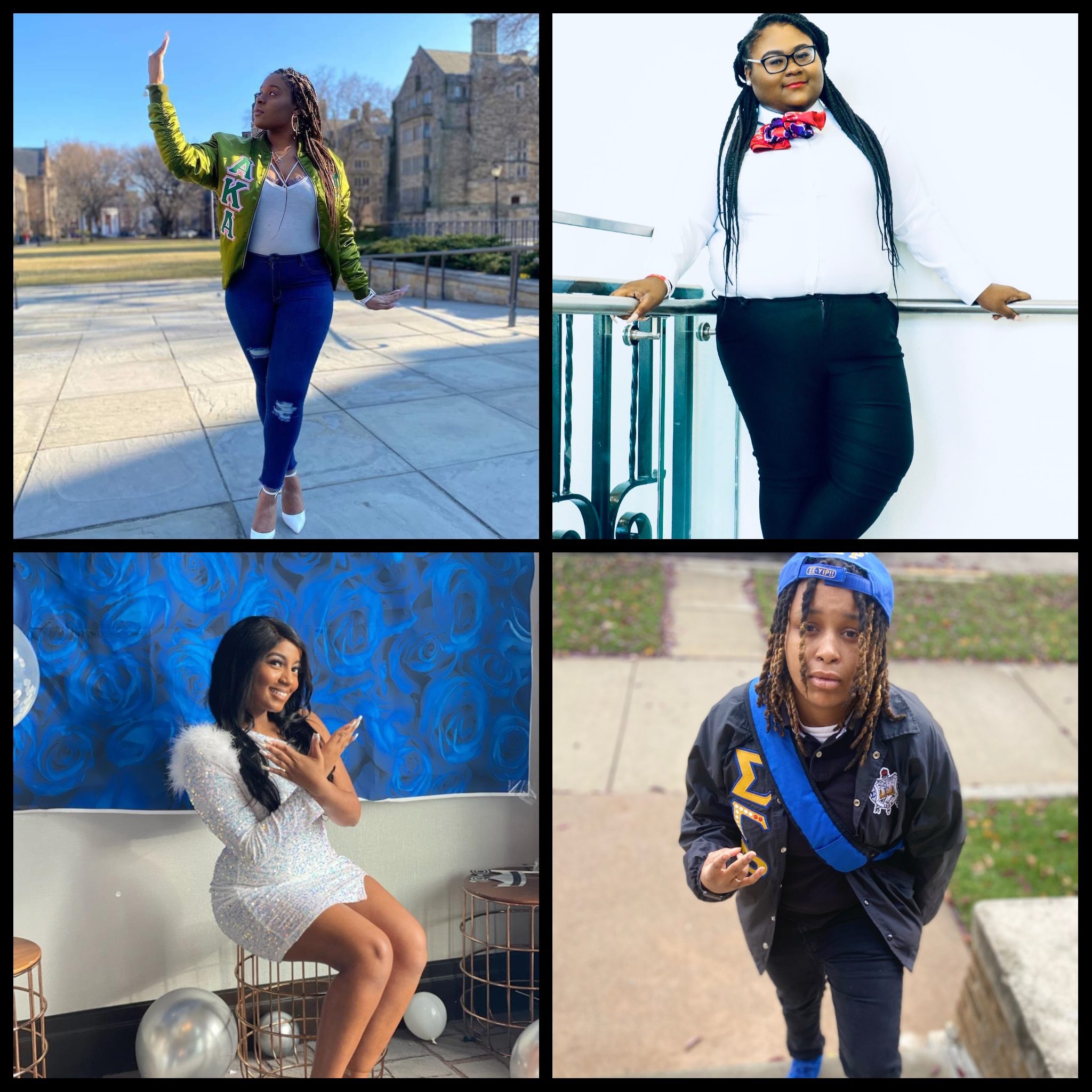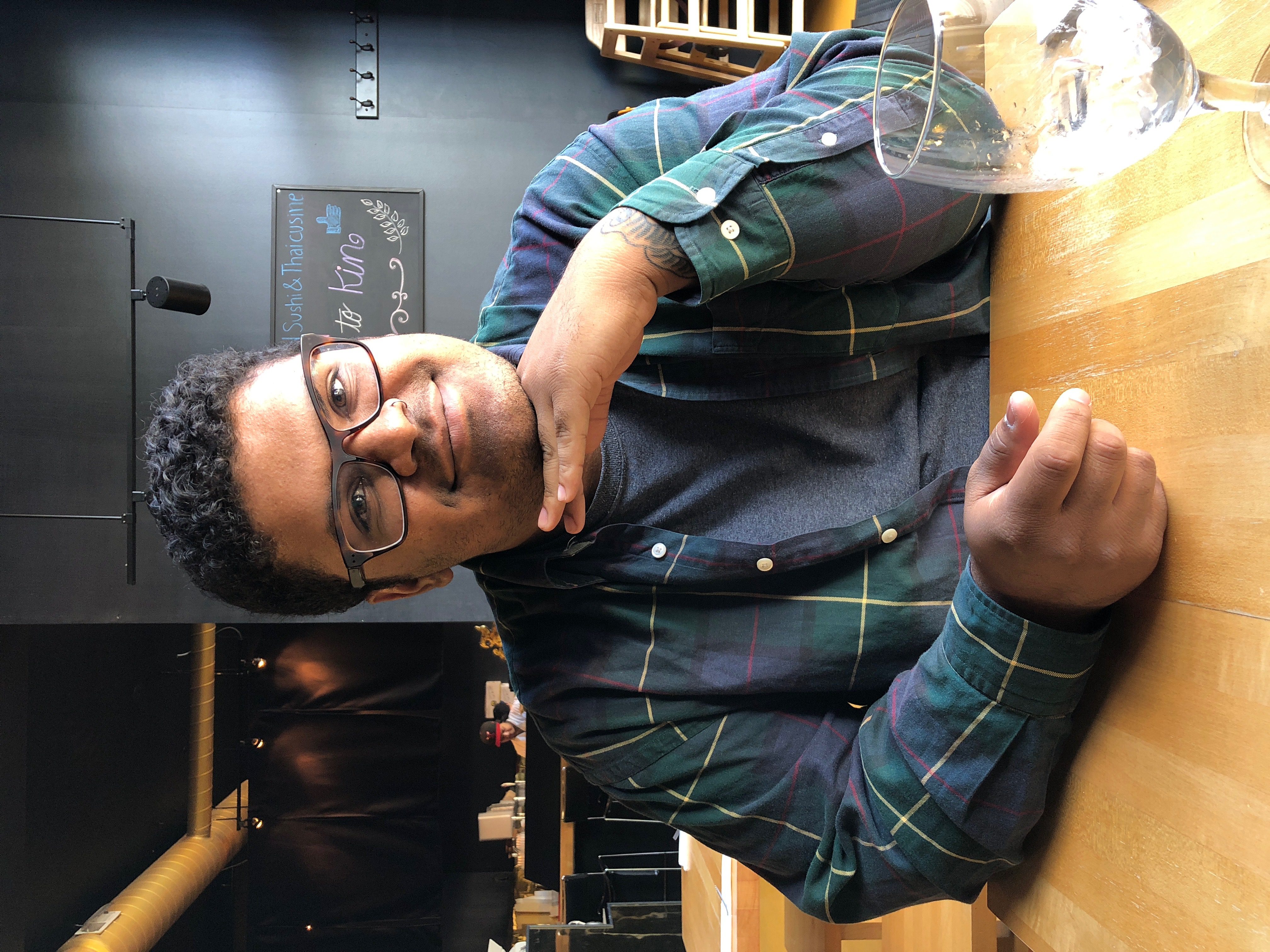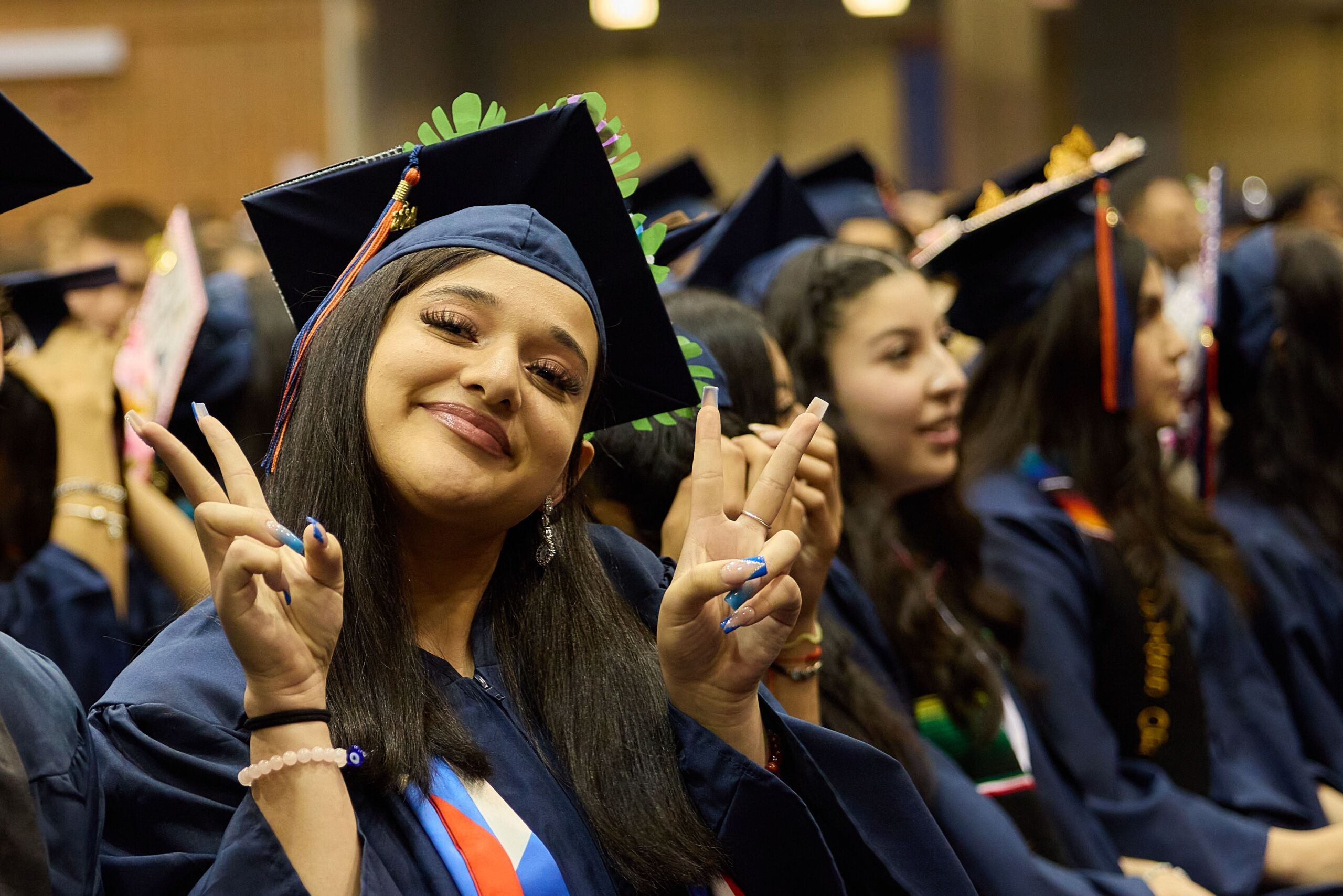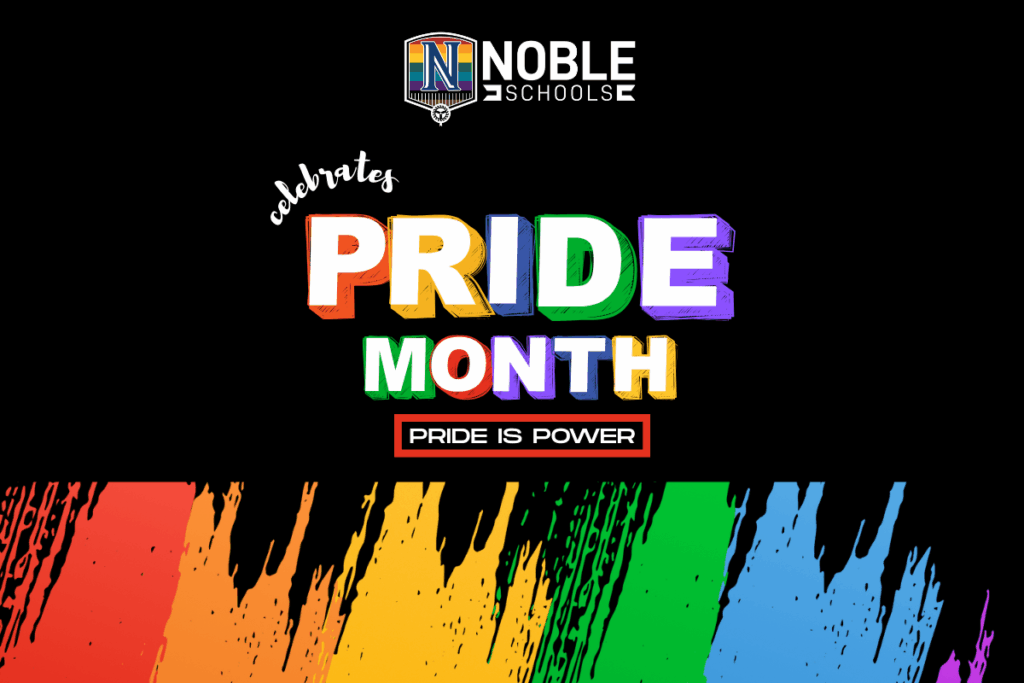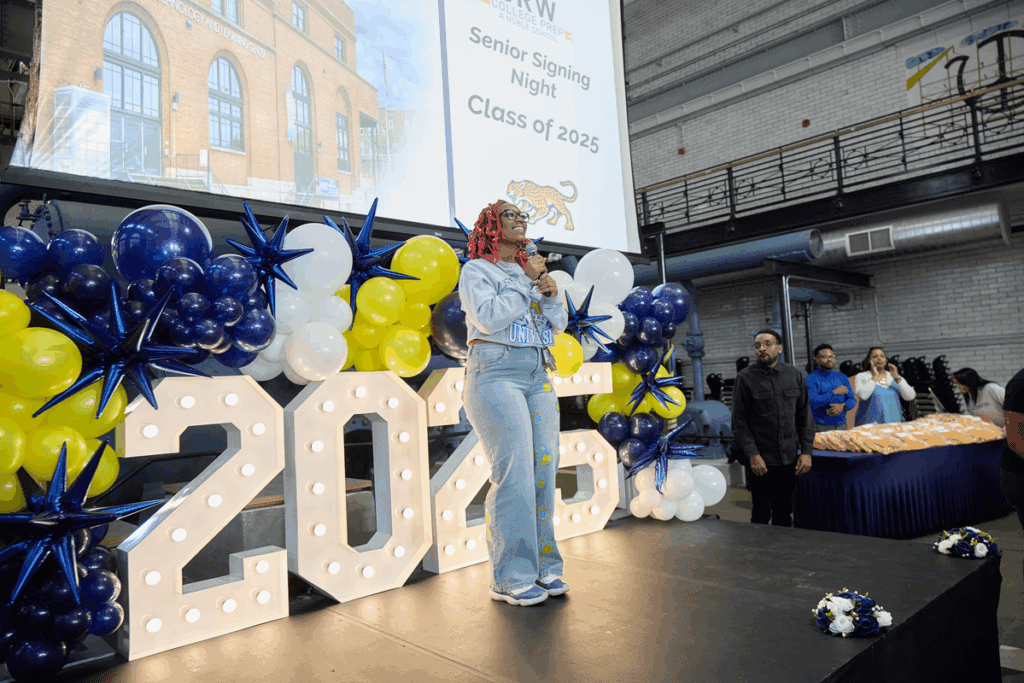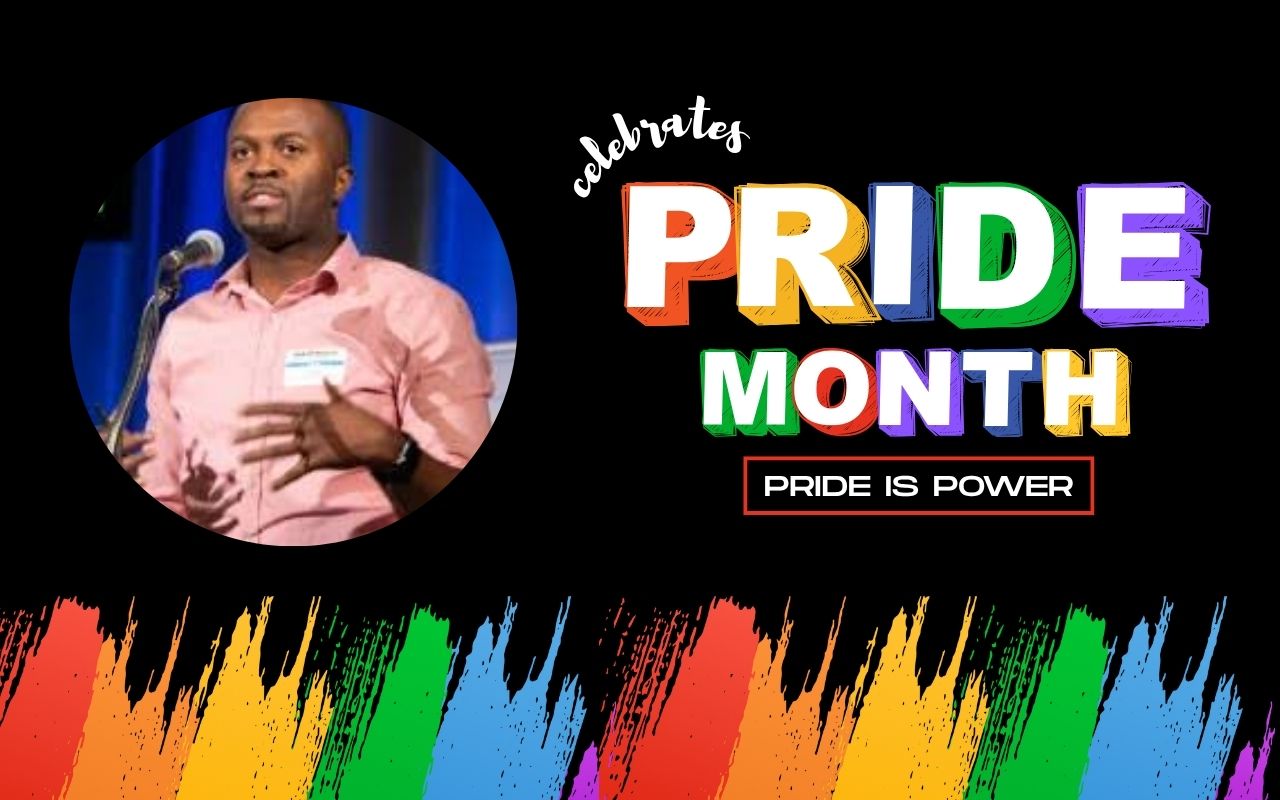
This is part of a series of writings from Noble staff that celebrate heritage and history. This piece was written to celebrate Pride Month in 2025.
By Cory Cain | he/him
Dean of Instruction, Pritzker College Prep
Noble Family,
I serve as the only Black and queer male instructional leader at Pritzker College Prep. As I matriculated through the University of Miami, Columbia University, and Northwestern Pritzker School of Law, I hoped to find truth but often faced rigid norms and rules about race, gender, and behavior that forced me to hide who I was. This Pride Month, themed “Freedom,” I break my silence to share my queer identity, hoping to free our scholars to be themselves.
Stigma Traps Us: Society demands Black men like me fit a narrow mold. We must be tough, straight, and unyielding. My masculinity became a mask, hiding my queerness to avoid rejection. Silence shielded me but also caged me. I watched my brother’s coming out celebration while my revelation sparked my parents’ anger. I carried their pain, guiding them to acceptance over the years. That burden fueled anxiety, a weight Black queer people know, with studies showing higher rates of depression due to discrimination. I see it in scholars who fear judgment. As a result, Noble must be a place where students shed masks and stand free.
Allies Free Us: Support breaks barriers. When a teacher honors a student’s identity or a peer challenges a harmful remark, it builds safety. Last year, I stood on stage at Pritzker, supporting Pride Month. Boys from my advisory, puzzled, asked if I’m queer or why I’d support queer people, given my love for sports, weightlifting, and knowledge. Their confusion showed how masks hide the truth. Seeing their questions turn to understanding sparked hope. I coach teachers to teach acceptance in every lesson. Allies help scholars find freedom by creating spaces where silence isn’t needed.
Redefining Black Masculinity: Black men, queer or straight, must rethink what manhood means. Society’s rules, often rooted in racism and homophobia, box us into roles that limit our humanity. As Moss (2016) notes, queer Black men face a “double consciousness,” navigating racism from white spaces and homophobia from Black communities. We challenge these barriers by showing strength in vulnerability, whether through intellect, athleticism, or identity. At Pritzker, I model this for scholars, proving Black men can embrace all parts of themselvesqueer, strong, wise—without shame.
Joy in Our Unity: Bayard Rustin taught us we are one, and ignoring this brings difficult lessons. At Columbia, I joined a study group that included a Latina lesbian, a white trans woman, and a straight Black man. We started divided, each guarding our truths. Sharing stories—mine of masking my queerness, theirs of claiming their identities—allowed us to find joy in our differences. That joy drives me at Pritzker, where I see it in a scholar’s laugh, free because they feel safe. An injustice, like a queer student feeling unwelcome, harms us all—whether in Grand Crossing or Belmont Cragin. Our shared fight frees us to find joy together.
Our Call to Action: This Pride Month, ask yourself, how will I make Noble safe for every scholar? Break the silence. Teach respect in every moment. Hear others’ truths. Show them their identity matters. As I shed my mask, I can see a scholar’s tearful smile, knowing they belong, and my heart is full. Let’s build classrooms where every scholar finds that joy.
Por Cory Cain | he/him/él
Dean of Instruction, Pritzker College Prep
Noble familia:
Soy el único líder educativo negro y queer en Pritzker College Prep. Mientras estudiaba en la Universidad de Miami, la Universidad de Columbia y la Facultad de Derecho Pritzker de Northwestern, esperaba encontrar la verdad, pero a menudo me enfrentaba a normas y reglas rígidas sobre la raza, el género y el comportamiento que me obligaban a ocultar quién era. Este Mes del Orgullo, cuyo lema es «Libertad», rompo mi silencio para compartir mi identidad queer, con la esperanza de liberar a nuestros estudiantes para que puedan ser ellos mismos.
El estigma nos atrapa: la sociedad exige que los hombres negros como yo encajemos en un molde estrecho. Debemos ser duros, heterosexuales e inflexibles. Mi masculinidad se convirtió en una máscara que ocultaba mi homosexualidad para evitar el rechazo. El silencio me protegía, pero también me encerraba en una jaula. Vi cómo mi hermano celebraba su salida del armario, mientras que mi revelación provocaba la ira de mis padres. Llevé su dolor, guiándolos hacia la aceptación a lo largo de los años. Esa carga alimentó la ansiedad, un peso que conocen las personas negras queer, ya que los estudios muestran tasas más altas de depresión debido a la discriminación. Lo veo en los estudiantes que temen ser juzgados. Como resultado, Noble debe ser un lugar donde los estudiantes se quiten las máscaras y sean libres.
Los aliados nos liberan: El apoyo rompe barreras. Cuando un profesor respeta la identidad de un estudiante o un compañero cuestiona un comentario dañino, se crea un ambiente de seguridad. El año pasado, subí al escenario del Pritzker para apoyar el Mes del Orgullo. Los chicos de mi grupo de asesoramiento, desconcertados, me preguntaron si era queer o por qué apoyaba a las personas queer, dado mi amor por los deportes, el levantamiento de pesas y el conocimiento. Su confusión demostró cómo las máscaras ocultan la verdad. Ver cómo sus preguntas se convertían en comprensión me llenó de esperanza. Entreno a los profesores para que enseñen la aceptación en todas las clases. Los aliados ayudan a los estudiantes a encontrar la libertad creando espacios donde no es necesario guardar silencio.
Redefiniendo la masculinidad negra: Los hombres negros, queer o heterosexuales, deben replantearse lo que significa la masculinidad. Las normas de la sociedad, a menudo arraigadas en el racismo y la homofobia, nos encasillan en roles que limitan nuestra humanidad. Como señala Moss (2016), los hombres negros queer se enfrentan a una «doble conciencia», navegando entre el racismo de los espacios blancos y la homofobia de las comunidades negras. Desafiamos estas barreras mostrando fuerza en la vulnerabilidad, ya sea a través de la inteligencia, el atletismo o la identidad. En Pritzker, soy un modelo para los estudiantes, demostrando que los hombres negros pueden aceptar todas las partes de sí mismos —queer, fuertes, sabios— sin vergüenza.
La alegría de nuestra unidad: Bayard Rustin nos enseñó que somos uno, y que ignorar esto conlleva lecciones difíciles. En Columbia, me uní a un grupo de estudio en el que había una lesbiana latina, una mujer trans blanca y un hombre negro heterosexual. Empezamos divididos, cada uno protegiendo sus verdades. Compartir nuestras historias —la mía sobre cómo ocultaba mi homosexualidad y las suyas sobre cómo reivindicaban sus identidades— nos permitió encontrar la alegría en nuestras diferencias. Esa alegría me impulsa en Pritzker, donde la veo en la risa de los estudiantes, libres porque se sienten seguros. Una injusticia, como que un estudiante queer se sienta rechazado, nos perjudica a todos, ya sea en Grand Crossing o en Belmont Cragin. Nuestra lucha común nos libera para encontrar la alegría juntos.
Nuestro llamado a la acción: Este Mes del Orgullo, pregúntate: ¿cómo haré que Noble sea un lugar seguro para todos los estudiantes? Rompe el silencio. Enseña el respeto en todo momento. Escucha las verdades de los demás. Muéstrales que su identidad importa. Cuando me quito la máscara, puedo ver la sonrisa llorosa de un estudiante, sabiendo que pertenece a este lugar, y mi corazón se llena. Construyamos aulas donde todos los estudiantes encuentren esa alegría.
By Cory Cain | he/him
Dean of Instruction, Pritzker College Prep
贵族家庭,
我是普利兹克预科学校唯一一位黑人且性少数群体的男性教学领导者
污名困住我们:社会要求像我这样的黑人男性符合狭隘的标准。
盟友解放我们:支持打破壁垒。当老师尊重学生的身份,
重新定义黑人男性气质:无论黑人男性是同性恋还是异性恋,
团结中的喜悦:贝亚德·鲁斯汀教导我们,我们是一体的,
我们的行动号召:在这个骄傲月,问问自己,
